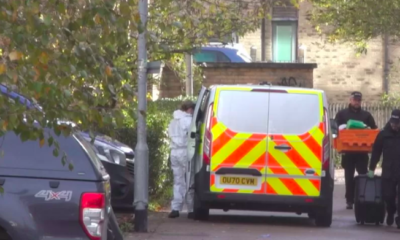
Bank of Ireland has announced it will close 15 branches in Northern Ireland, which is more than half of its 28 branches currently operating in NI.
It is essential for a more extensive expense cutting activity which will close more than 100 branches across the island of Ireland. The Dublin-based bank works across the Republic of Ireland and the UK, and is one of NI’s ‘huge four’ banks. CEO Francesca McDonagh said the bank’s UK head office will likewise migrate from London to Belfast. The bank has been evaluating its Northern Ireland activities and there had been theory that it could pull out from the market. That has not occurred, yet Ms McDonagh said the Northern Ireland business will go through “a material rebuild”. The organization will distinguish the branches reserved for conclusion later on Monday, however has given a responsibility that it will hold at any rate one branch in every region. The terminations will influence the parts of around 120 staff in Northern Ireland however “no obligatory redundancies are included,” as per Ian McLaughlin, Chief Executive of Bank of Ireland UK. He told the BBC’s Good Morning Ulster program that the bank would attempt to distinguish staff who could be redeployed to different jobs inside the organization, as an option in contrast to repetition. Mr McLaughlin additionally said it will be 12 weeks before any of the terminations start and the bank will contact clients exclusively to tell them about the changes. Beside shutting 15 branches, the rebuilding of its Northern Ireland business will incorporate improving on its scope of items with a more prominent spotlight on vehicle account and home loans. The bank will likewise proceed with its methodology of pulling out from less beneficial loaning across the UK. It said this would mean its UK credit book contracting by about 10% during 2021. The bank’s UK division made a deficiency of £15m in 2020, contrasted with a benefit of £152m in 2019. The misfortune was because of impedance charges – cash which should be put aside to cover credits which may not be reimbursed in full. All banks have seen expanded debilitation charges because of the financial effect of the pandemic. The bank in general showed a yearly deficiency of €760m (£657m), again because of impedance charges. “We’ve declared some somewhat eye-watering numbers today, as most banks,” Mr McLaughlin revealed to Good Morning Ulster. “It’s been a truly difficult stretch and any individual who advises you diversely isn’t actually focusing, yet we have a truly strong business here,” he demanded. Mr McLaughlin added that the migration of the bank’s UK office to Belfast was “truly uplifting news and an indication of our obligation to Northern Ireland”. He said the branch terminations were because of changes in client conduct in the course of the most recent four years. He contended that as the ubiquity of advanced administrations like internet shopping had expanded, banks couldn’t be “offended” from the change to computerized. “Our clients are utilizing our branches less and less and we’ve arrived at somewhat of a tipping point,” Mr McLaughlin said. “Our money use and clients visits in the shutting branches is down 70% since 2017 and proportionately our computerized banking up half over a similar period so we need to adjust and we need to change.” Bank of Ireland had just shut a few branches in the course of the most recent decade. In 2011, it had 44 branches in Northern Ireland. In August a year ago, the bank said it was planning to eliminate 1,400 positions from its UK and Ireland tasks. A week ago, Ulster Bank affirmed it would close its Republic of Ireland business throughout the following not many years.





































































































































































































































































































































































































































































































































































































































































































































RSS